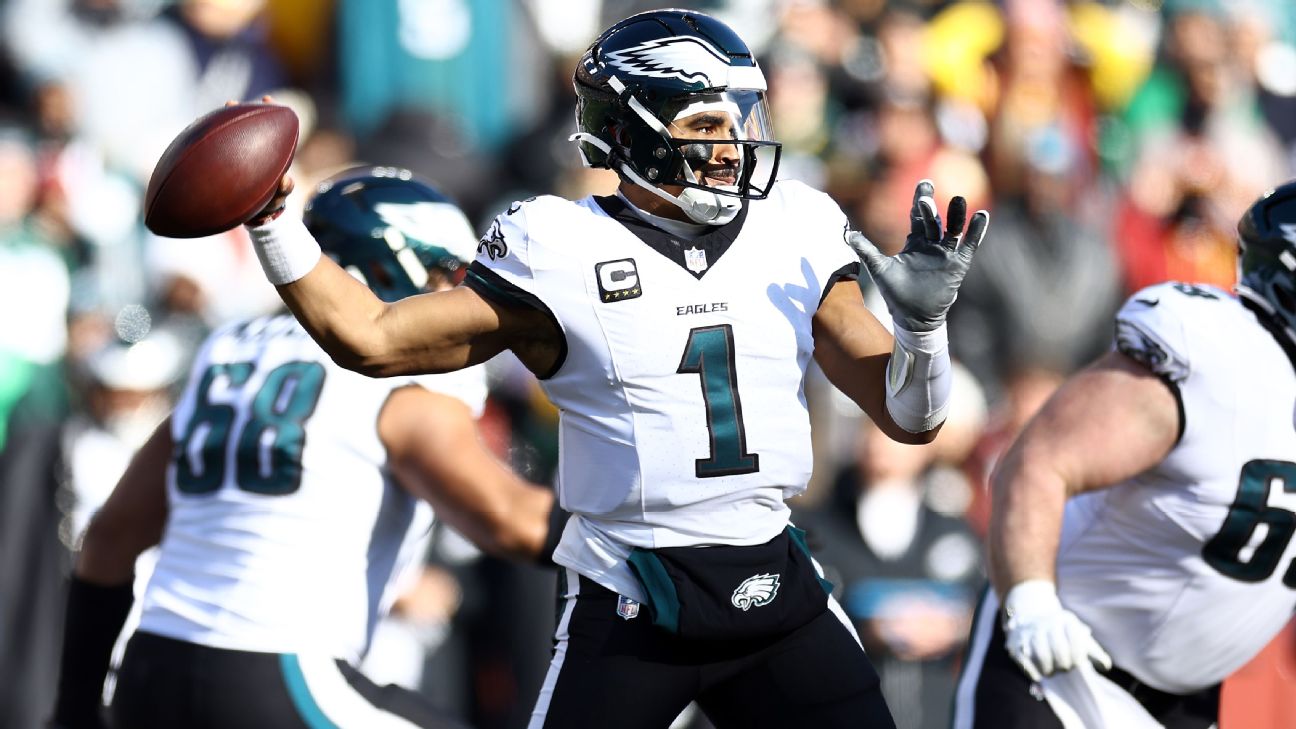Eagles' Lane Johnson praises Chip Kelly but says power, control were issues

PHILADELPHIA -- Jeff Lurie wished Chip Kelly all the best in his future outside of Philadelphia. Lane Johnson called his recently fired boss a "brilliant coach."
But Lurie -- the Philadelphia Eagles owner -- and Johnson -- the third-year right tackle -- also shed some light on why Kelly was fired Tuesday, before completing his third season as head coach.
"Maybe the ego got in the way," Johnson told reporters Wednesday. "Too much power. Control. Not being human about things; not working together, with the team, instead of being a dictator."
Lurie didn't say anything that provocative about Kelly, but the way he talked about the qualities he seeks in a successor was revealing.
"Looking for somebody who interacts very well and communicates clearly with everybody he works with and comes in touch with," Lurie said. "[Somebody who] understands the passion of our fans and what it's like to coach the Philadelphia Eagles. It's a unique and incredibly passionate fan base that just wants to win, and you've got to incorporate that in your life and in your heart and you've got to be willing to do that.
"And another thing is attention to detail. I think all good coaches have tremendous attention to detail in this league. Lastly is you've got to open your heart to players and everybody you want to achieve peak performance. I would call it -- I would call it a style of leadership that values information, all the resources that are provided, and at the same time, values emotional intelligence."
Players have talked about Kelly's standoffish nature. After being traded to Pittsburgh over the summer, cornerback Brandon Boykin said that Kelly wouldn't say anything when he passed a player in the hallway. Johnson said many players found it difficult to approach Kelly.
"[The team needs] a guy that if issues arise you're able to talk to, communicate and solve the problem, instead of maybe being a one-way guy that's just set in his ways," Johnson said. "I think Chip really did care about this team. I just think there was some difficulties with him coming out and saying what he needed to say. "
Johnson talked about Kelly's strenuous practice regimen. While Kelly did make changes at the request of players, the Eagles continued to practice more, and at a faster pace, than other NFL teams.
"Practice here is pretty much the same, from OTAs through training camp to the end of the season," Johnson said, according to Philly.com. "No other guys in the league go from April through the end of the season. It takes a toll on you. At the end of the year, I feel like I'm going to fall apart.
"[The team needs to] get back to a more traditional style of offense. I've been running this tempo [stuff] since college. I'm pretty damned tired. It takes a toll on you. You do it over a period of time, a lot of guys in this league aren't going to last. ... Bigger guys, it's harder on your joints. A lot of pounding. Your hips. Your back. All you're doing is torquing all day."
But Kelly's practice schedule and techniques were an elemental part of his entire team culture. He made tweaks when players complained -- notably, cornerback Cary Williams last year -- but he wasn't going to scrap his principles. And Kelly had the unquestioning faith of the true believer.
"We had some teammates that would go up there and say some stuff to him," Johnson said. "Chip's actually changed some stuff since last year. Practices weren't as bad as it was two years before, so things did change. But all in all, we weren't effective how we played this year."
Eagles running back DeMarco Murray, whom Kelly helped lure away from the Cowboys before the season with a $42 million, five-year contract in free agency, also commented.
"You never wish anything bad upon anyone," he said. "You're dealing with people's families. It's the nature of the business. At the end of the day, it's a bottom-line business. It's about wins, losses and productivity. It's a fresh start for everyone. You get a fresh breath of air and you've just got to make the most of the opportunity."
The Eagles clearly declined during the season the last two years. Lurie realized the only way to change the practice approach was to change coaches.
"I go back to peak performance," Lurie said. "If you want to have peak performance, you have to have tremendous collaboration, trust, respect, smartness, agility. You've got to have a lot going for to you achieve peak performance and leadership."
Said Johnson: "I know he's a brilliant coach. It's probably tough making the transition from college to the NFL. It's different, and if you're set in your ways, maybe closed-minded a little bit and not willing to change, it's going to be difficult. It's going to rub people the wrong way."






